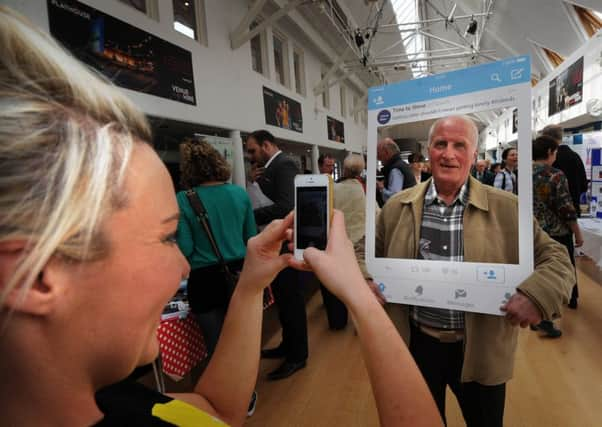Project will celebrate six years of bringing city's lonely out of the shadows


And halfway through the city’s £6m lottery-funded project set up to “turn the tide” of social isolation has helped more than 7,600 older people across the city.
Time to Shine will celebrate three years of improving the lives of older people with a celebration event at Leeds City Museum on May 25.
Advertisement
Hide AdAdvertisement
Hide AdLeeds Older People’s Forum was one of 14 organisations across the country, including a similar project in Sheffield, to be awarded £1m a year from the Big Lottery Fund’s Fulfilling Lives: Ageing Better programme in September 2014, eight months after the Yorkshire Post launched its Loneliness: The Hidden Epidemic campaign.
Then, it was estimated that there were 37,000 lonely or socially isolated older people in Leeds, with the number growing each year. Commissioning began almost immediately, and the first projects began in May 2015.
Programme manager Hillary Wadsworth said: “The target was to reach 15,000 people over six years, and we’ve already reached 7,642 - some are one-off participants, and others are regulars.
“From the very beginning, from when the bid was being put together, a lot of the work has been co-produced by older people.
Advertisement
Hide AdAdvertisement
Hide Ad“Seventy-five per cent of our programme management board is made up of people over 50, and 237 older people have been involved in the design and development of the project.”
Across the city, Time to Shine has 30 ongoing projects, including schemes like Shared Tables, which began in Crossgates and spread across the city, and sees older people attend lunches at local restaurants and eat together and form friendships.
Activities are aimed at a range and breadth of groups of people, including members of BME and LGBT communities, and those with long-term health conditions or frailty.
“Sometimes the only people an older person might see or speak to each week is a doctor or carer,” Mrs Wadsworth said. “We are trying to give people hope - something to talk about or do, and a chance to make new friends.”